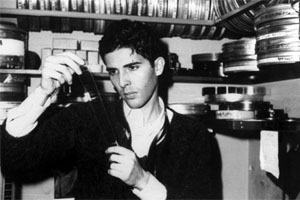On Saturday, Paulo Rocha, one of the central figures of Portugal’s Novo Cinema, passed away, aged 77. Having studied directing at the Institut des Hautes Etudes Cinématographiques from 1959 through 1961, Rocha was an assistant director for Jean Renoir on Le caporal épinglé (The Elusive Corporal, 1962) before making his own feature debut, Os Verdes Anos (The Green Years, 1963; Ray Pride has posted two clips). Rocha then assisted Manoel de Oliveira on the documentary Acto de Primavera (Rite of Spring, 1963) and the short film A Caça (The Hunt, 1964).
This summer, Los Angeles Filmforum screened Rocha’s second “and arguably most important film,” Mudar de Vida (Change of Life, 1966), “a direct response to Oliveira’s Rite of Spring (and, indirectly, to [Agnès] Varda‘s Pointe Courte) and an important precursor to the radical documentary-shaped fiction of [António Reis and Margarida Cardoso’s] Trás-os-Montes and, much later, the work of Pedro Costa and Miguel Gomes.” The film also features “the great Isabel Ruth who would go onto become a Oliveira regular and an iconic presence in Costa’s Ossos.”
From 1975 to 1983, Rocha was Portugal’s cultural attaché in Japan, a country whose culture inspired A Ilha dos Amores (The Island of Love), which screened in Competition at Cannes in 1982. Rocha would return to Cannes in 1998, when O Rio do Ouro screened in the Un Certain Regard section.
For news and tips throughout the day every day, follow @KeyframeDaily on Twitter and/or the RSS feed. Get Keyframe Daily in your inbox by signing in at fandor.com/daily.




